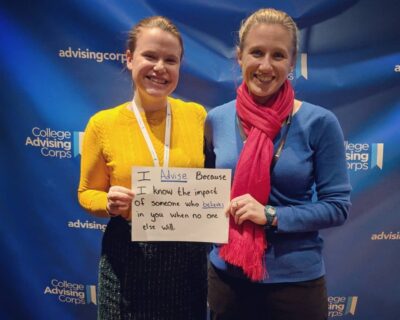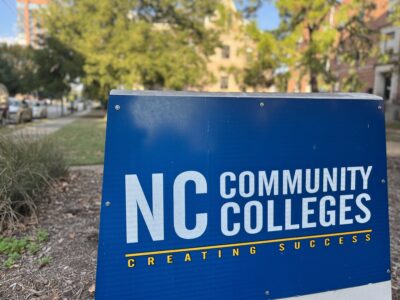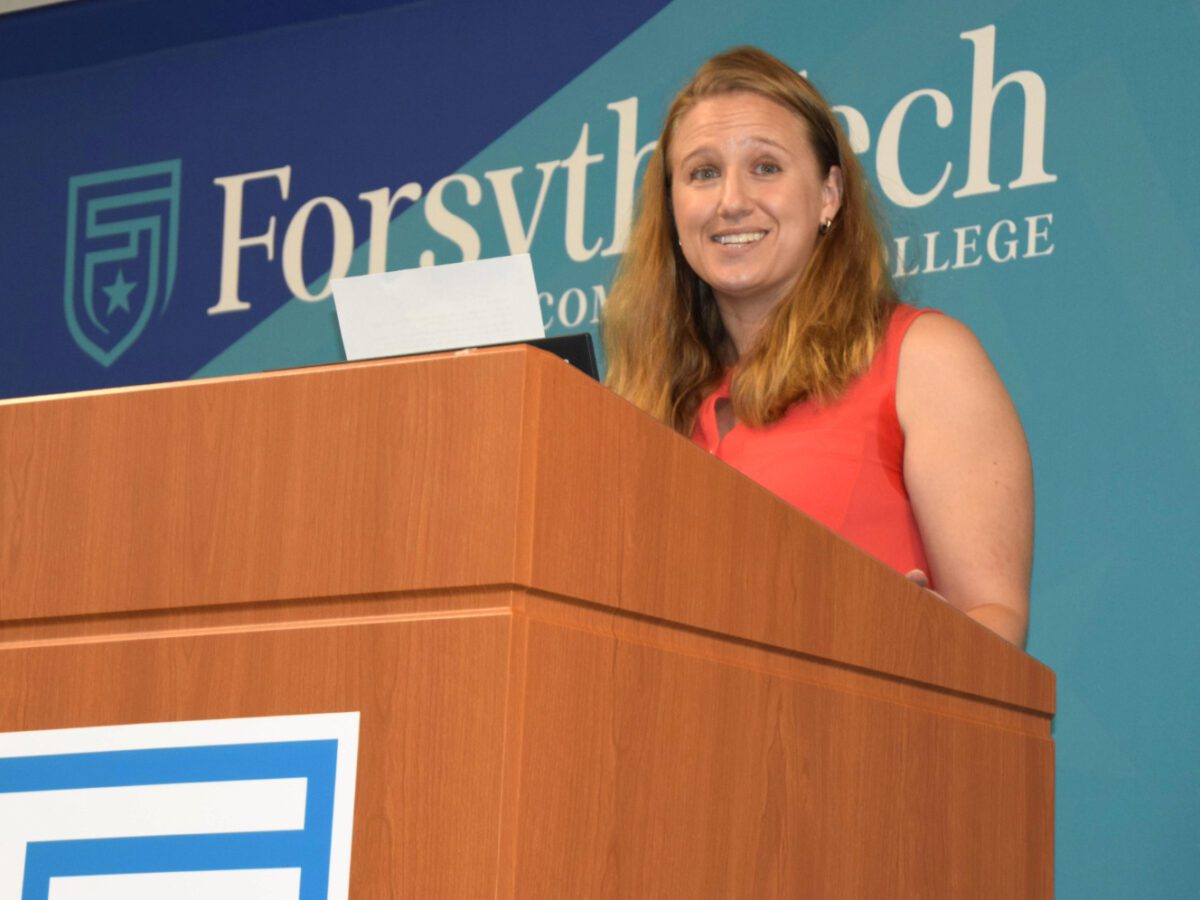
|
|
“We’ve made it to the starting line!” said Dr. Nicole Ditillo, Boost director for the North Carolina Community College System (NCCCS), to a room of staff members from the eight community colleges participating in the program’s first cohort.
Funded by a $35.6 million grant from Arnold Ventures, Boost is an accelerated college-to-career program designed to increase completion rates and move students into high-wage, high-demand jobs by providing them with timely and relevant support, dedicated student advising, and financial incentives. It is the first statewide replication of the CUNY ASAP model, a nationally acclaimed and evidence-based program that has proven its ability to increase three-year community college graduation rates.
On July 22 and 23, Boost directors, advisors, campus leadership, communications staff, and data staff from the first cohort convened at Forsyth Technical Community College for a summer training to prepare for launch. They were joined by staff from the CUNY ASAP National Replication Collaborative, a technical assistance provider supporting the implementation of the program, and from the Belk Center for Community College Leadership and Research, the organization leading the formal research and evaluation of Boost.
Sessions included training on the foundations of the CUNY ASAP model, how Boost will be integrated into other existing student support services on community college campuses, and how its advisors will approach engaging and supporting their students throughout the academic year.
Sign up for Awake58, our newsletter on all things community college.
Beginning in the fall 2025 semester, eight community colleges will enroll students in Boost. Students can learn more and apply by visiting their college’s Boost webpage:
- Alamance Community College
- Caldwell Community College & Technical Institute
- Cape Fear Community College
- Central Piedmont Community College
- Cleveland Community College
- Forsyth Technical Community College
- Johnston Community College
- Wake Technical Community College
In 2026, seven additional community colleges will launch Boost: Bladen Community College, Central Carolina Community College, Isothermal Community College, McDowell Technical Community College, Robeson Community College, Sampson Community College, and Western Piedmont Community College.
Learn more about Boost
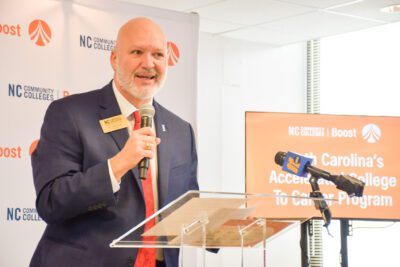

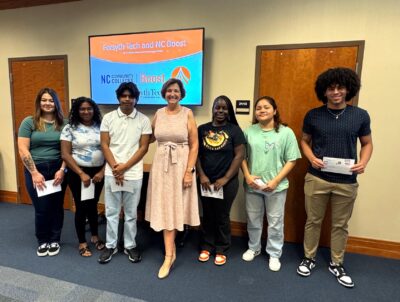
To be eligible for Boost, students must meet a variety of criteria, including being a North Carolina resident and being enrolled in an associate degree program that is aligned with Propel NC, the NCCCS proposed funding model that “prioritizes connecting students to high-wage, high-demand jobs.” Eligible degree programs vary by college but may include fields such as health care, engineering and advanced manufacturing, trades and transportation, information technology, and public safety and first responders.
Once accepted, students will receive a variety of supports, including frequent interactions with a dedicated Boost advisor, cohort activities with other Boost students, up to $600 per academic year for textbook costs, and a $100 monthly stipend for successfully meeting with their advisor.
“Boost is based on a pretty simple idea. When you can give students the right kind of help at the right time — things like one-on-one advising and coaching; intentional, relational, flexible supports; and encouragement to stay on track — then you can help them make it to the finish line, and you can help them do that much faster than ever before,” said Janet Spriggs, president of Forsyth Technical Community College, at the college’s Boost launch event on July 15.
To measure the impact of Boost, the Belk Center will conduct three complementary research studies from July 2025 to December 2031, including measuring the program’s impact on persistence, transfer, and credential completion; evaluating its economic benefits; and identifying strategies to scale the model across the entire community college system.
“Boost represents a transformative step toward improving post-completion success and workforce readiness across the Great 58. Through this evaluation, we aim to demonstrate what works – helping shape a sustainable model that delivers long-term impact in North Carolina,” said Audrey J. Jaeger, executive director of the Belk Center and W. Dallas Herring Professor of Community College Education.
Editor’s note: Arnold Ventures supports the work of EducationNC.
Recommended reading
